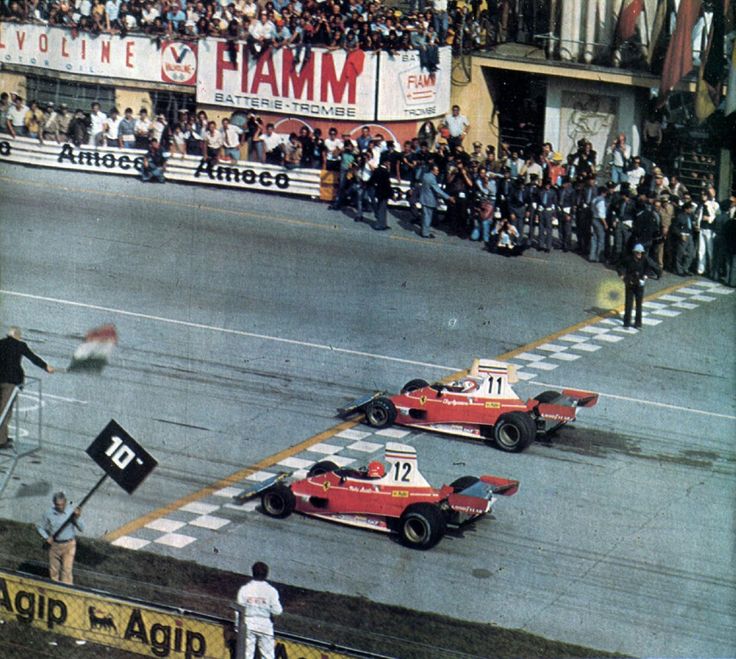Revving into the Future: Nigeria’s Formula 1 Dream Inches Closer
.jpeg)
The Sound of Something New
In a country where the streets often echo with the familiar buzz of tricycles, danfos, and hurried engines, a different sound is about to enter the Nigerian landscape — one of speed, precision, and global attention. Formula 1, the world’s most prestigious motor racing event, has cast its eyes on Nigeria. And the news has stirred not just excitement, but a rare kind of pride.
This is not a rumor. It’s a project in motion. And if all goes according to plan, Nigeria could become the first West African country to host an F1-level racing facility — a bold leap into a sporting universe long viewed as distant and elite.
But what’s even more intriguing is that this isn’t just about cars and asphalt. It’s about infrastructure, technology, culture, and the quiet arrival of something long overdue: Nigeria being part of the global conversation in an arena it has never been known for.
From Vision to Blueprint
The initiative is led by the Nigerian company F1 PowerHorse, in collaboration with major stakeholders in the international motorsport community. Their vision? A world-class racing facility capable of hosting F1-standard races, along with training academies, entertainment districts, and a homegrown racing industry.
The proposed site? Abuja — the nation’s capital — with plans underway for a multi-billion-naira motorsport village that would include a Grand Prix circuit, pit buildings, racing paddocks, medical and technical centers, hospitality spaces, and even fan parks.
It's not a temporary track, but a permanent fixture. A landmark in itself. And if realized, it will place Nigeria alongside cities like Dubai, Jeddah, and Las Vegas as a global F1 destination.
Beyond the Thrill of Speed
At its heart, Formula 1 is about much more than racing. It’s a celebration of engineering, design, reflex, and human ambition. Every turn of the wheel, every microsecond on the clock, speaks to a discipline of excellence.
For Nigeria, the potential gains are layered. The economic possibilities are vast — from tourism and global sponsorships to merchandising, media rights, and local jobs in engineering, logistics, event management, and hospitality.
Even more, it could serve as a platform for young Nigerians to explore careers in sports technology, automotive design, and aerodynamics — fields that have long felt out of reach. With proper integration into universities and polytechnics, this project could ignite entire disciplines that blend passion with profession.
The racing circuit isn’t just a track. It’s a classroom, a laboratory, and a launchpad.
A Cultural Pivot
There’s also something culturally powerful about this move. Motorsports, like many other elite global sports, have often been dominated by regions with legacy infrastructure and wealth. For years, Africa has been on the periphery of the conversation, despite a passionate audience.
Now, that boundary is shifting.
The arrival of F1 infrastructure in Nigeria challenges the narrative of what the continent can host, build, or celebrate. It places Africa not as a bystander, but as a participant in the modern spectacle of sport and speed.
From Lagos to Nairobi, Accra to Addis, the buzz is real — not just because F1 is flashy, but because it signals a continent refusing to stay boxed into the categories others created for it.
Building More Than a Track
To pull off this dream, Nigeria must think not only of the racetrack but the ecosystem around it. Transport access, security, broadband infrastructure, accommodation — all of these are part of the success story.
And while this article is not for skepticism, it’s worth noting that this is a complex undertaking. But with partners from the global racing scene and a private-sector-led approach, there is hope that what’s being designed is not just symbolic but sustainable.
Already, partnerships are being formed with automotive schools abroad, and early talks hint at potential collaborations with international F1 teams. This is more than an event. It’s an industry-in-waiting.
The ripple effect could be transformative — a tourism boost, yes, but also increased visibility for Nigerian artists, designers, chefs, musicians, and brands. Events like F1 don’t arrive alone; they come with a global spotlight.
And this time, the spotlight is ours to prepare for.
More Than a Moment
For many young Nigerians, especially those raised on stories of Hamilton , Verstappen, or Leclerc, the dream of witnessing live F1 action has always meant traveling out of the continent. Now, that dream may come home.
Imagine school buses filled with students on an educational trip to a live race. Imagine a local racing league birthed from the training schools. Imagine the child from Jos or Benin City watching the tarmac light up in Abuja and saying: “I want to be an engineer there one day.”
That is the real power of this project — not just the speed of the cars, but the ignition of imagination.
What the Road Ahead Looks Like
As of now, land acquisition, environmental clearance, and urban planning talks are underway. International engineers have been on site for preliminary assessments, and design prototypes are being reviewed. The developers have also expressed interest in integrating renewable energy sources to power the facility — a forward-thinking addition.
Timeline projections estimate that the first phase could be completed in the next two to three years, with regional races and development programs preceding a potential official F1 bid in the longer term.
It’s a marathon, not a sprint. And it has already begun.

Photo Credit: Pinterest
A Dream in Gear
The Nigeria Formula 1 project is more than just a grand idea—it is a declaration. That we too can dream in high octane. That our youths deserve to dream beyond borders. That luxury doesn’t have to be foreign, and ambition doesn’t always have to leave the country to be fulfilled.
And so, while the engines are yet to roar, and the stands are yet to rise, the mere fact that the blueprint exists is enough reason to celebrate. For once, the finish line is not what matters most.
What matters is that Nigeria has entered the race.
You may also like...
When Sacred Calendars Align: What a Rare Religious Overlap Can Teach Us

As Lent, Ramadan, and the Lunar calendar converge in February 2026, this short piece explores religious tolerance, commu...
Arsenal Under Fire: Arteta Defiantly Rejects 'Bottlers' Label Amid Title Race Nerves!

Mikel Arteta vehemently denies accusations of Arsenal being "bottlers" following a stumble against Wolves, which handed ...
Sensational Transfer Buzz: Casemiro Linked with Messi or Ronaldo Reunion Post-Man Utd Exit!

The latest transfer window sees major shifts as Manchester United's Casemiro draws interest from Inter Miami and Al Nass...
WBD Deal Heats Up: Netflix Co-CEO Fights for Takeover Amid DOJ Approval Claims!

Netflix co-CEO Ted Sarandos is vigorously advocating for the company's $83 billion acquisition of Warner Bros. Discovery...
KPop Demon Hunters' Stars and Songwriters Celebrate Lunar New Year Success!

Brooks Brothers and Gold House celebrated Lunar New Year with a celebrity-filled dinner in Beverly Hills, featuring rema...
Life-Saving Breakthrough: New US-Backed HIV Injection to Reach Thousands in Zimbabwe

The United States is backing a new twice-yearly HIV prevention injection, lenacapavir (LEN), for 271,000 people in Zimba...
OpenAI's Moral Crossroads: Nearly Tipped Off Police About School Shooter Threat Months Ago
ChatGPT-maker OpenAI disclosed it had identified Jesse Van Rootselaar's account for violent activities last year, prior ...
MTN Nigeria's Market Soars: Stock Hits Record High Post $6.2B Deal

MTN Nigeria's shares surged to a record high following MTN Group's $6.2 billion acquisition of IHS Towers. This strategi...






